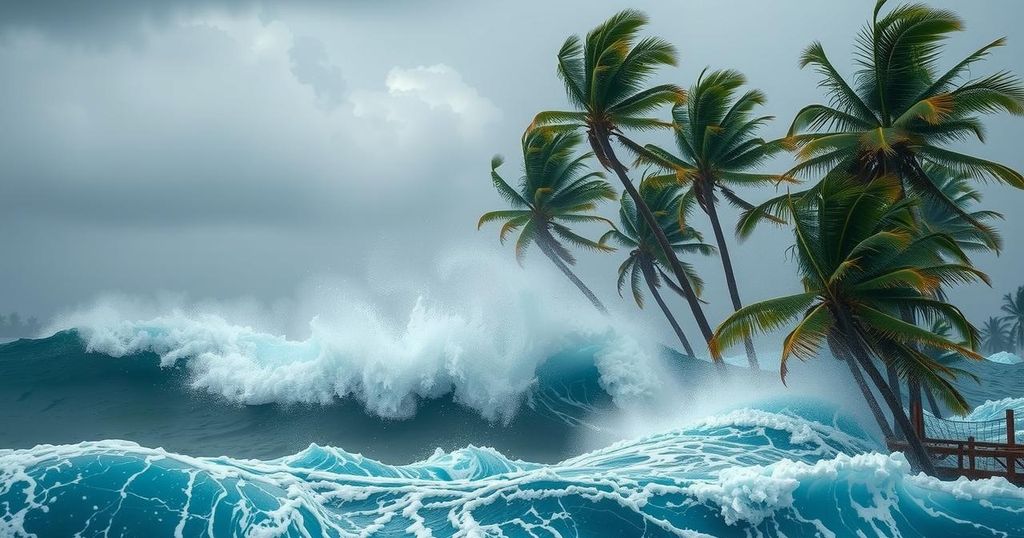Climate Change Intensifies Cyclone Chido’s Impact on Mayotte
A study from Imperial College London reveals that climate change intensified Cyclone Chido, increasing the likelihood of such storms by 40 percent compared to pre-industrial times. Chido, a Category 4 cyclone, caused severe damage in Mayotte, raising fears of a rising death toll as officials assess the true impact of the disaster. The research indicates wind speeds have increased by three miles per second due to climate change, enhancing the storm’s severity.
A recent preliminary study conducted by scientists at Imperial College London has established that climate change significantly intensified Cyclone Chido as it approached Mayotte, an Indian Ocean archipelago. The analysis indicates that the likelihood of cyclones of Chido’s magnitude has increased by 40 percent in the climate of 2024 when compared with pre-industrial periods. Chido, recognized as the most damaging cyclone to strike Mayotte in nearly nine decades, made landfall with devastating effects, particularly impacting the impoverished territories of France.
Rated as a category four storm, Cyclone Chido crossed the small archipelago where a substantial portion of the populace resides in makeshift housing. The true extent of the devastation remains unclear, yet officials have expressed concerns that the casualty count could escalate significantly. The study from Imperial College London aimed to assess how global warming may have influenced the wind speeds and intensity of tropical storms such as Chido.
Utilizing advanced computer models capable of simulating millions of tropical cyclones to compensate for a lack of empirical data, researchers concluded that wind speeds in the vicinity where Chido made landfall had risen by three miles per second compared to conditions prior to the industrial age. Their findings suggest that climate change is capable of elevating the strength of storms, transforming Cyclone Chido from a Category 3 to a Category 4 cyclone.
While France’s weather service has refrained from definitively linking Chido’s intensity to climate change due to a lack of conclusive studies, it acknowledges that warmer ocean temperatures resulting from human-induced climate change have contributed to the increased violence of storms. Mayotte experienced the cyclone’s full force, and Meteo-France concludes that Chido’s disastrous impact was largely a result of its trajectory across the island. With current global temperatures approximately 1.3 degrees Celsius higher than pre-industrial levels, experts affirm that this added heat is increasing the frequency and severity of extreme weather events, as warmer air retains more moisture while warm oceans accelerate evaporation, thereby enhancing conditions for tropical storms.
The analysis of Cyclone Chido presents critical insights into the relationship between climate change and the frequency of severe tropical storms. As temperatures rise due to human activities, such as burning fossil fuels, the atmosphere and oceans warm, fostering conditions that lead to more intense and volatile weather patterns. This phenomenon is vital for understanding the implications of climate change on natural disasters and their potential impact on vulnerable populations, particularly in regions like Mayotte that are ill-equipped to handle such calamities.
In conclusion, the study by Imperial College London underscores the significant role of climate change in exacerbating natural disasters, exemplified by Cyclone Chido. The research suggests a concerning trend in the increasing frequency and intensity of tropical storms due to rising global temperatures. With alarming predictions for future weather events, it is imperative to address the underlying causes of climate change to mitigate similar devastating impacts on vulnerable coastal communities.
Original Source: www.barrons.com




Post Comment